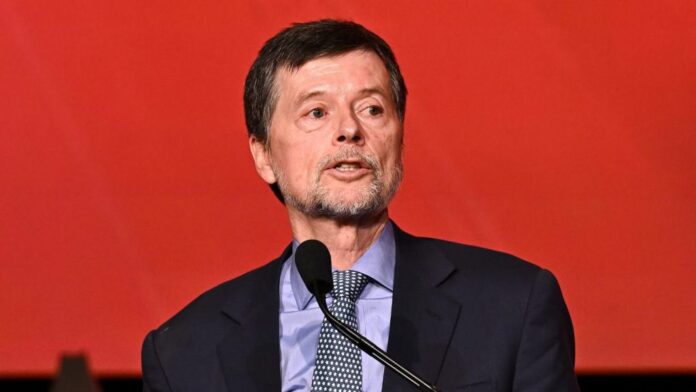After the Senate passed Donald Trump‘s federal federal funding cuts to public media, documentarian Ken Burns worries for the future of documentary filmmaking.
The two-time Oscar-nominee and five-time Emmy winner expressed his “state of shock” over the funding cuts’ impact on PBS, which has hosted several of his documentaries and contributed to his overall career.
“I think we’re all in a bit of a state of shock, and also reeling at the sort of shortsightedness of it all,” said Burns on PBS NewsHour (watch below). “This is such an American institution trusted by people across political divides, geographic divides, age groups. What’s so shortsighted about it, I think, is that this mostly affects rural communities, or [they] are the hardest hit.”
Burns noted that around 20% of his budgets come from the Corporation for Public Broadcasting. “That’s a significant hit; we’ll have to make it up. I’m confident that with the extra work, it will happen,” he said.
“But it’s those projects at the national level that might get 50 or 60, maybe even 75% of their funding from the Corporation for Public Broadcasting,” Burns continued. “They just won’t be able to be made, and so there will be less representation by all the different kinds of filmmakers. People coming up will have an impossible time getting started.”
On Thursday, the Senate voted 51-48 to pass Trump’s set of spending cuts to rescind $1.1 billion from public media, despite warnings that the funding rollbacks will devastate the PBS, NPR and public station ecosystem.
The bill now goes to the House for final passage, with a vote possible on Thursday. Congress has a deadline of Friday to pass the package.
Paula Kerger, president and CEO of PBS, said in a statement: “The Senate just approved a rescissions package that goes against the will of the American people, the vast majority of whom trust PBS and believe we provide excellent value to their communities.
“These cuts will significantly impact all of our stations, but will be especially devastating to smaller stations and those serving large rural areas,” she added. “Many of our stations which provide access to free unique local programming and emergency alerts will now be forced to make hard decisions in the weeks and months ahead.”



